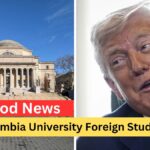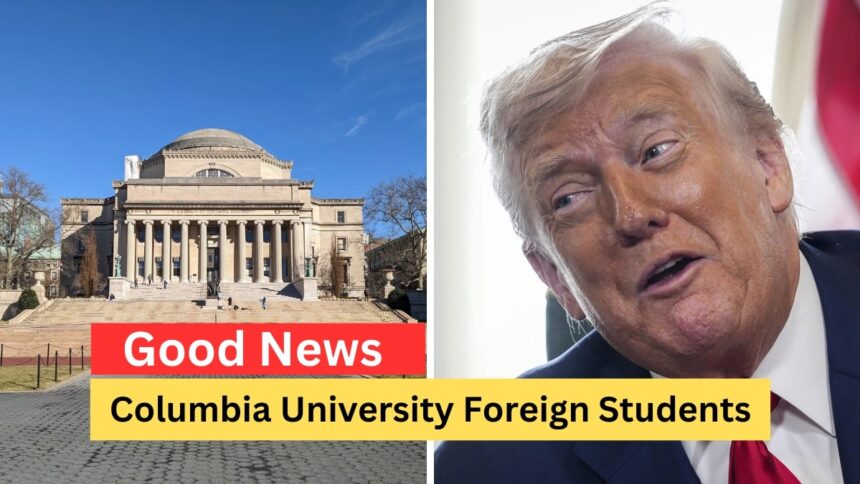Columbia University Foreign Students Face Crackdown Under Trump-Era Policing Agreement
Columbia University has entered into a controversial agreement with the Trump administration, committing to new policing measures targeting foreign students. The deal, effective August 1, 2025, is part of a larger $221 million settlement and could drastically shift the university’s relationship with its international student body—a group that contributes significantly to its academic diversity and financial health.
Key Agreement Terms
Under the settlement, Columbia University has agreed to:
- Report arrest information of foreign students to the federal Student and Exchange Visitor Information System (SEVIS), even for minor infractions like trespassing.
- Monitor and share more detailed visa-related data with immigration authorities.
- Reduce its financial dependency on international students, many of whom pay full tuition.
- Review and possibly adjust its international admissions policies.
These steps extend beyond existing SEVIS reporting rules, which only required disclosure in cases of suspension, expulsion, or loss of enrollment status.
Why This Matters for Foreign Students
With nearly 40% of its students coming from outside the U.S., Columbia University foreign students are a major pillar of its academic ecosystem. But the new requirements could create fear and uncertainty among international applicants, especially as the U.S. faces growing global competition from countries like the UK and Australia for top academic talent.
“This policy puts Columbia in a dual role—as a defender of intellectual freedom and an enforcer of immigration reporting,” said Chris Glass from Boston College.
Broader National Context
The agreement fits into the Trump administration’s wider efforts to tighten immigration rules and increase scrutiny on student visas:
| Recent Government Actions | Impacted Institution |
|---|---|
| Visa revocations of Chinese students for security reasons | Nationwide |
| DOJ investigation into foreign student policies | University of Chicago |
| State Department probe into foreign research compliance | Harvard University |
In May 2025, Secretary of State Marco Rubio pledged to “aggressively revoke” visas deemed a threat to U.S. interests. These crackdowns, coupled with Columbia’s new obligations, signal a federal trend toward enhanced enforcement in higher education.
Columbia’s Position and Reaction
In an internal letter, Columbia’s Acting President Claire Shipman emphasized that the university’s decision was motivated by concern over a potential revocation of visa status for thousands of students. She insisted the university won’t report anything beyond what federal law already requires.
Yet critics argue that the expanded cooperation with federal agencies blurs the line between education and enforcement.
Impact on Columbia University Foreign Students
| Area Affected | Details |
|---|---|
| Admissions | Likely decline in international applications |
| Revenue | Reduced tuition from full-paying international students |
| Campus Climate | Increased fear and uncertainty among foreign students |
| Privacy & Trust | Concerns over reporting of non-academic infractions like protests |
In May, 78 Columbia students were arrested for trespassing during a pro-Palestine protest—now a reportable offense under the new terms. These measures suggest that even peaceful campus activism may now jeopardize a student’s visa.
National Implications and Warnings
Experts say Columbia’s settlement could set a precedent for other universities negotiating with the federal government.
“This is something universities never had to do before,” said Fanta Aw, Executive Director of NAFSA. “It may become the new normal.”
While Brown University also reached a federal agreement recently, it did not include foreign student provisions—highlighting Columbia’s unique role in the unfolding immigration policy landscape.
Conclusion
The deal between Columbia University and the Trump administration has thrust the school into the center of the U.S. immigration debate. As universities across the country watch closely, questions remain about how this precedent will impact Columbia University foreign students, admissions, and the global academic community.
If replicated elsewhere, these policies could discourage the very students who bring academic excellence, global perspective, and billions in tuition revenue to the U.S.
Also more: USCIS Family Immigration Policy Tightens: New Rules Effective August 1, 2025






